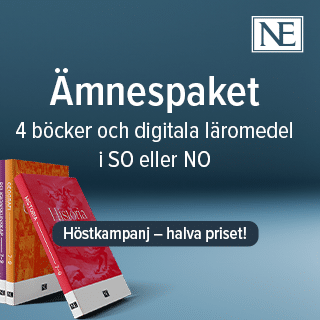The formation of successful physics students: Discourse and identity perspectives on university physics
Anders Johansson vill med sin avhandling bidra till en fördjupad bild av sociala förhandlingar kring identiteter och normer i fysikutbildningen på universitetet.
Anders Johansson
John Airey, Uppsala universitet Maja Elmgren, Uppsala universitet Kathryn Scantlebury, Uppsala universitet
Professor Ellen Karoline Henriksen, Universitetet i Oslo
Uppsala universitet
2018-10-05
The formation of successful physics students: Discourse and identity perspectives on university physics
Institutionen för fysik och astronomi
The formation of successful physics students: Discourse and identity perspectives on university physics
In university physics education, unequal student participation has always been an issue. An example is the fact that men constitute 70–80% of the student body in most countries. In recent years, physics education research has started to explore issues of participation, diversity, and identity, but more research and theoretical and methodological development is needed. The work presented in this thesis adopts a discursive perspective on students’ physics identity, building on developments in gender studies and related fields. Focusing on several important steps in physics education, the study explores what it means to become a physicist by asking how norms about being a successful physics student are constructed in the discourses of the education. The methodology is qualitative and interpretative, using participant observation and interviews to explore classroom discourse and student narratives. These theoretical and methodological tools combined with a detailed focus on physics education practice, provide a framework for a deeper understanding of identity in physics. A general conclusion of this study is that physics courses, when taught from a narrow physics perspective, may limit the possibilities for identification for many students. For example, engineering students on less physics-oriented programmes had difficulties seeing electromagnetism as significant for their vocational identity. Similar results occurred in quantum mechanics, where a strong focus on calculating can alienate some students. Concurrent with the particular appeal that quantum mechanics can have in attracting students to physics, a mismatch between expectations and course practice can cause an identity crisis for students investing in an identity as a quantum physicist. For physics master’s students, finding a place in physics meant negotiating norms about intelligence and “nerdiness”. These common and gendered stereotypical attributions for physicists took on specific significance in relation to subject choice in physics. More theoretical and pure physics directions were implicitly accorded higher status and seen as requiring more intelligence, but at the same time could also be positioned as more nerdy. The study’s outcomes provide input to physics instructors and departments who want to develop more inclusive and diverse physics education, as well as theoretical and methodological resources for further research.
Relaterade länkar

Fritidshem
 Åk F–6
Åk F–6 Matematikångest
 Åk 4–Vux
Åk 4–Vux 






